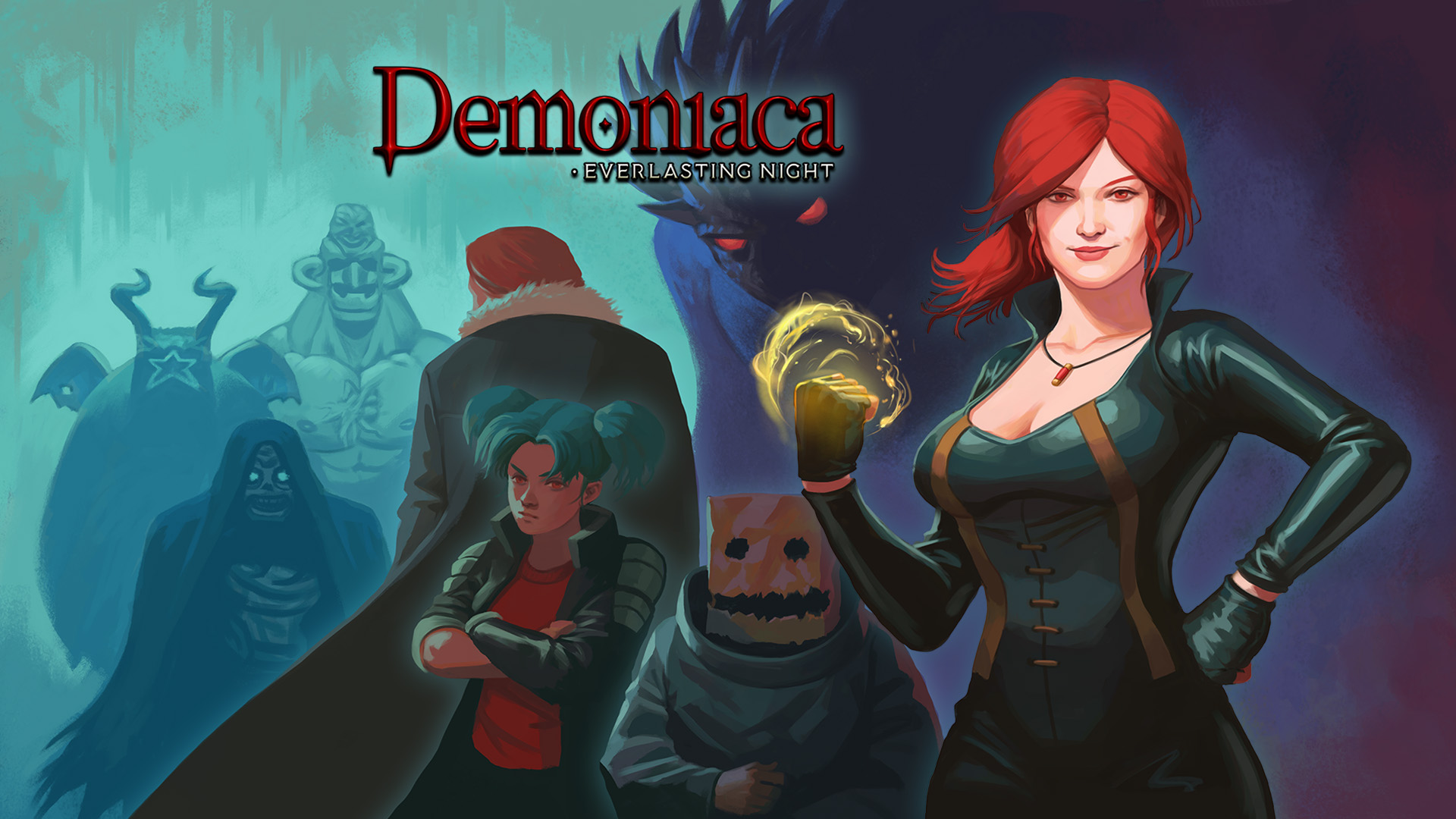Demoniaca: Everlasting Night
Developer: Aki
Publisher: Eastasiasoft
Platforms: PlayStation 4 (Reviewed), PlayStation 5, Xbox One, Xbox Series X, Switch, PC
Release Date: 12 January 2022
Price: US$14.99 – Available Here
Overview
Released on PC in 2019 and just now brought to consoles, Demoniaca: Everlasting Night is another addition for the now long list of indie games inspired by Castlevania, Metroid and more recently, Dark Souls. Normally, those kinds of games are known as “Souls-like Metroidvanias”, or just “Metroidvanias“, but I think that a new definition is in order for these games. Maybe “Soulsvaniatroid”? “Metrosoulvania”? Silliness aside, Demoniaca tries to set itself apart from its peers by throwing fighting game mechanics into the mix. This an interesting concept, for sure, but does it work in a sub-genre known by its fluid and fast pacing?
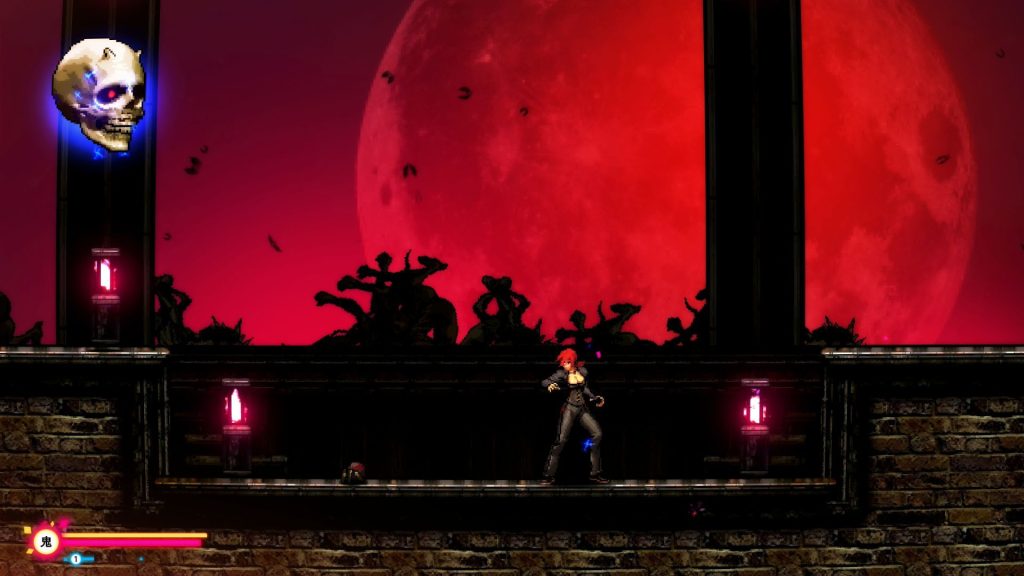
Story
A horde of Demons invaded our realm massacring everyone in sight. The Demons’ intention was to rebuild the fabled Tower of Babel. The protagonist or “Demoniaca” is lucky enough to survive by having Demon blood spilt onto her. Now, after sewing her body back using her new found powers, Demoniaca sets off to the Tower of Babel to exact revenge on the Demons.
While exploring the Tower of Babel, the player will meet a variety of NPCs. From villain-like ones who seem to be plotting something, to others that are a little more friendly and will even help you, most of them look like they’re out of a heavy metal band while others are a direct homage to classic Metroidvanias and Souls games. Even then, there’s not much story or dialogue to be had, and what’s there didn’t grip me very much.
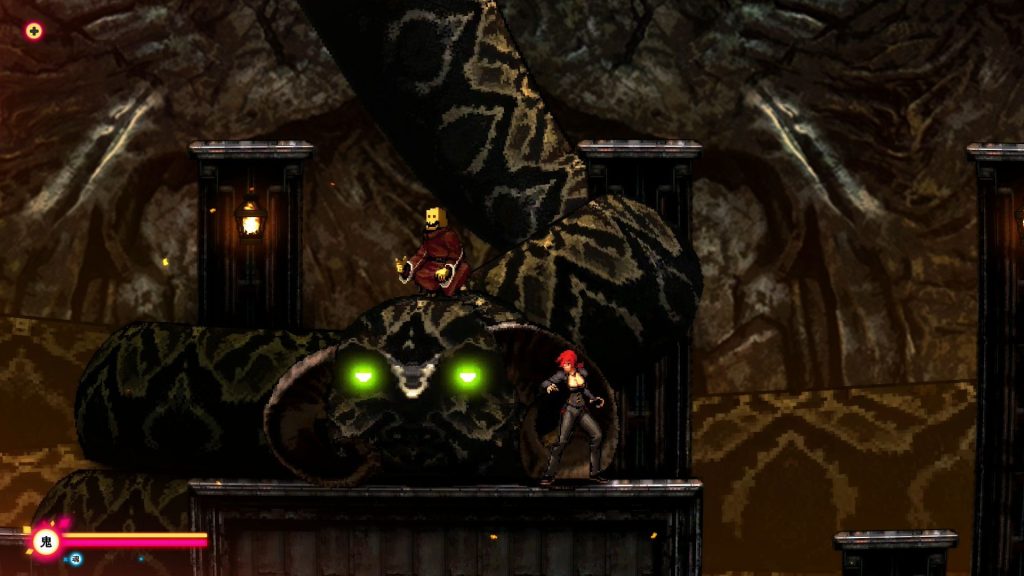
Gameplay
Demoniaca: Everlasting Night has all the features you’d expect from a title of its genre: A huge map to explore, items and new special moves to collect, RPG elements such as character leveling and whatnot. The combat is where Demoniaca really differs from other Metroidvanias; instead of equipping a sword and armor, Demoniaca prefers to solve her problems with her fists. In traditional fighting game fashion, the player can use weak and strong punches and kicks that can be combined to form short combos, special moves executed with a combination of d-pad and button inputs, a block button, and other abilities that you can unlock. These moves function just like in a fighting game, they’re weighty and slow with a lot of startup and recovery frames on strong and special moves. This means that the player will have to really commit to every punch they throw as they can leave Demoniaca open long enough to take a lot of damage. Some moves can stun some enemies briefly, but it’s up to the player to find out what works on what. As a general rule of thumb, approach enemies with caution as they can jump at you instantly, dishing a lot of damage, and also causing a variety of nasty status debuffs.
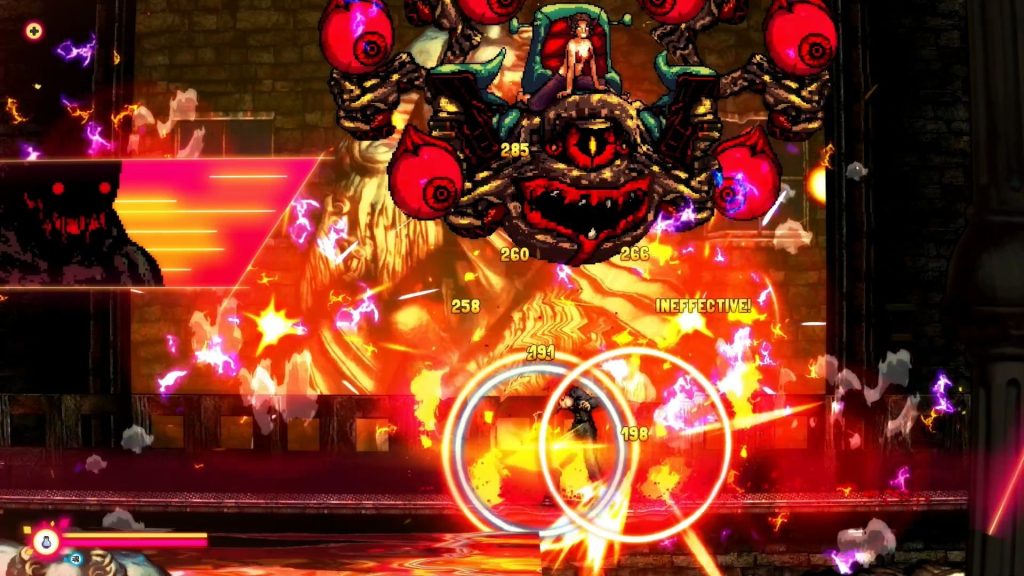
At the start of the game, the player is able to choose from two difficulty settings: Easy and classic. Easy would be the default difficulty that you can find in many metroidvanias; it does a good job of introducing the game and its mechanics without too much frustration. The problem with easy is that as the game progresses, you’ll find yourself a bit overpowered. Classic, on another hand, is more akin to a hard mode, and where the game’s flaws are more evident: The controls don’t respond too well, and feel as if they were transplanted directly from a fighting game; the combat becomes too one-sided, as enemies do a lot of damage and health items are scarce. You’ll find yourself just jumping over enemies most of the time so you can find some manner of restoring your life, or the next save point. There’s no autosave apart from a checkpoint that lets you retry a boss fight, so a save point is the first thing that the player must find upon reaching a new area. Also of note is how simple and monotone the overall level design is.
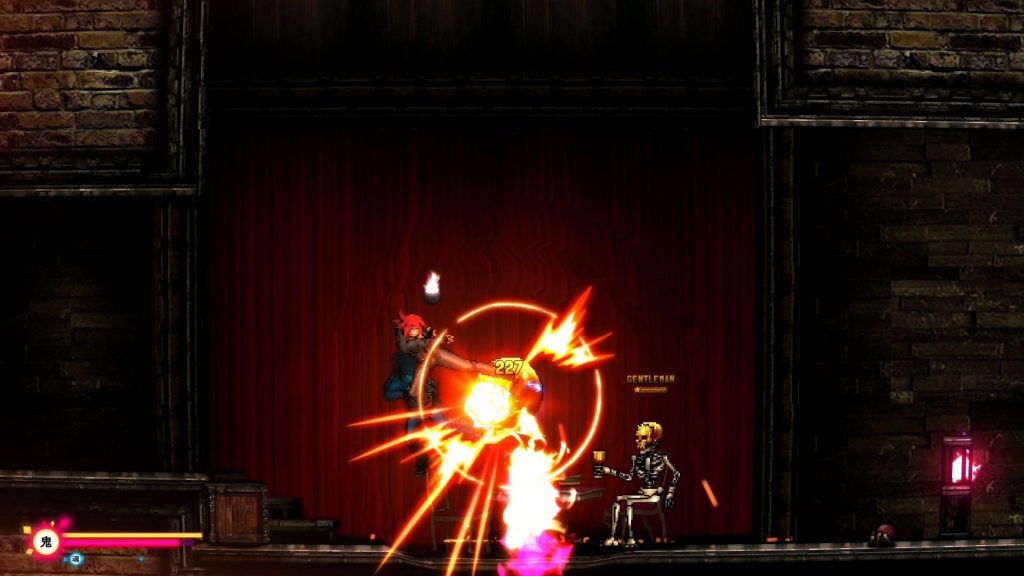
Visuals
Demoniaca: Everlasting Night is presented in a grimdark, heavy-metal like aesthetic. The introduction with the protagonist laying in a pool of blood, and subsequently sewing her body back, sets the horror tone that permeates the entire game well. There is also some “risqué” content in the form of nudity and suggestive imagery, but nothing too overbearing. The game is made entirely using 2D assets; while Demoniaca’s sprites and animations are mostly well done, the same can’t be said about the enemies. The backgrounds are also too static and drab for their own good.
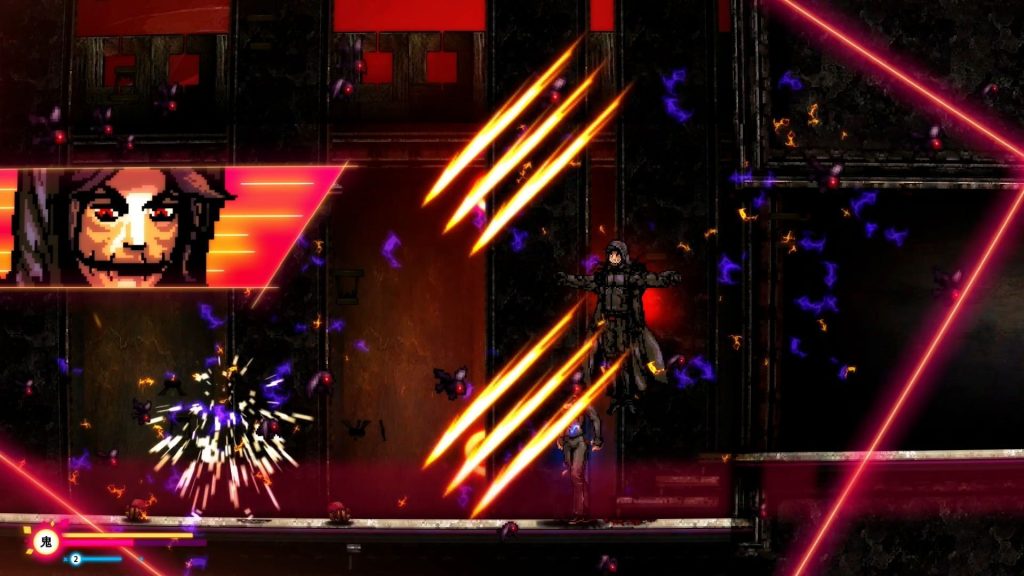
Audio
The game’s soundtrack is composed mostly of ambient rock, and while they fit the game, they’re not exactly catchy or varied. The sound effects are ok, but also too repetitive.
Overall
As much as I love the concept of a fighting game inspired “Beat em’ up Metroidvania”, Demoniaca’s execution leaves a lot to be desired. The game can be interesting if you set your expectations accordingly, or if you’re itching for the next metroidvania.
Capsule Computers review guidelines can be found here.


